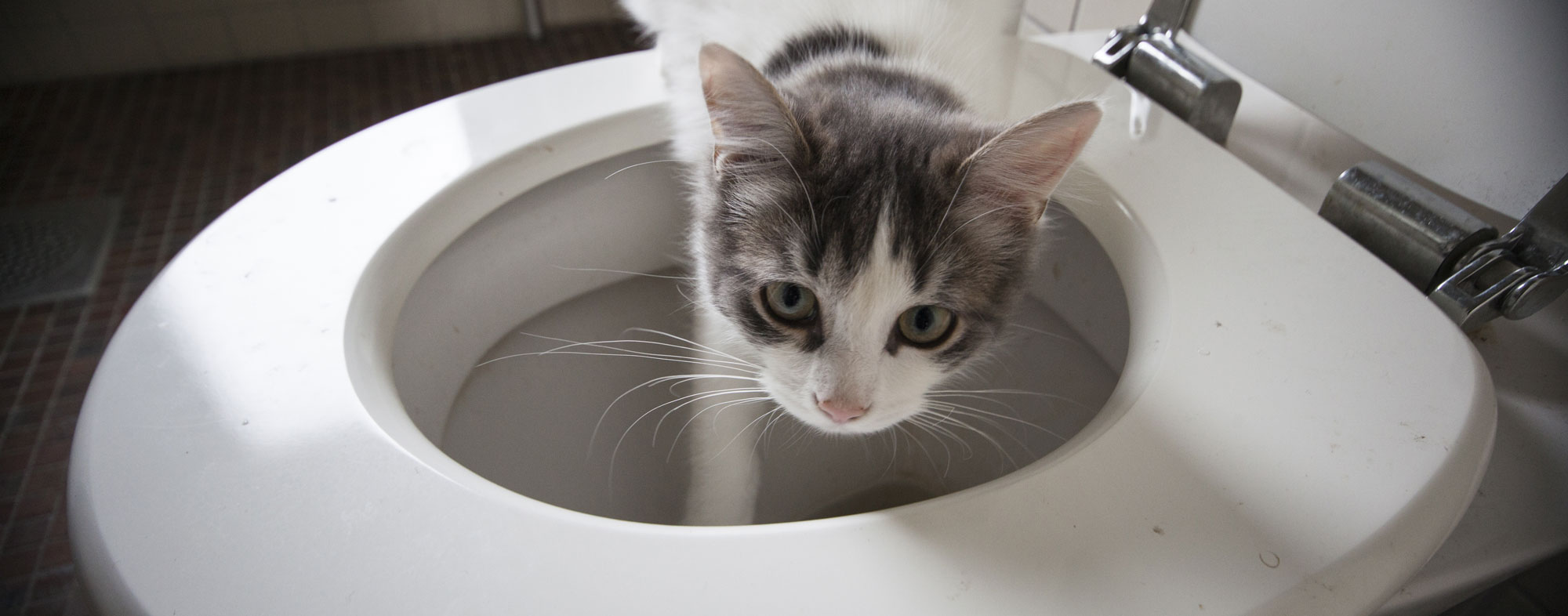Why You Must Never Flush Cat Poop Down Your Toilet - Important Information
Why You Must Never Flush Cat Poop Down Your Toilet - Important Information
Blog Article
We've uncovered this article about Don’t flush cat feces down the toilet listed below on the web and accepted it made perfect sense to relate it with you on my blog.

Introduction
As pet cat owners, it's necessary to bear in mind exactly how we throw away our feline good friends' waste. While it may appear convenient to purge cat poop down the bathroom, this practice can have destructive repercussions for both the setting and human health.
Alternatives to Flushing
Luckily, there are more secure and extra liable means to dispose of feline poop. Take into consideration the complying with options:
1. Scoop and Dispose in Trash
One of the most usual approach of getting rid of cat poop is to scoop it into a naturally degradable bag and throw it in the trash. Be sure to use a dedicated litter inside story and throw away the waste immediately.
2. Use Biodegradable Litter
Opt for eco-friendly cat clutter made from materials such as corn or wheat. These litters are eco-friendly and can be safely disposed of in the garbage.
3. Hide in the Yard
If you have a lawn, take into consideration burying feline waste in a designated location far from vegetable gardens and water resources. Make certain to dig deep enough to avoid contamination of groundwater.
4. Mount a Pet Waste Disposal System
Purchase a pet dog garbage disposal system particularly created for pet cat waste. These systems use enzymes to break down the waste, minimizing smell and ecological effect.
Wellness Risks
Along with environmental issues, flushing cat waste can also posture wellness threats to human beings. Pet cat feces might contain Toxoplasma gondii, a parasite that can cause toxoplasmosis-- a potentially extreme ailment, specifically for expecting women and people with weakened body immune systems.
Ecological Impact
Flushing feline poop introduces harmful microorganisms and parasites into the water supply, posturing a significant danger to marine environments. These contaminants can negatively affect aquatic life and compromise water high quality.
Final thought
Liable pet ownership prolongs past giving food and sanctuary-- it also involves proper waste management. By refraining from flushing cat poop down the commode and selecting different disposal approaches, we can minimize our environmental impact and protect human health and wellness.
Why You Should Never Flush Cat Poop Down the Toilet
A rose by any other name might smell as sweet, but not all poop is created equal. Toilets, and our sewage systems, are designed for human excrement, not animal waste. It might seem like it couldn’t hurt to toss cat feces into the loo, but it’s not a good idea to flush cat poop in the toilet.
First and foremost, assuming your cat uses a litter box, any waste is going to have litter on it. And even the smallest amount of litter can wreak havoc on plumbing.
Over time, small amounts build up, filling up your septic system. Most litter sold today is clumping; it is made from a type of clay that hardens when it gets wet. Ever tried to scrape old clumps from the bottom of a litter box? You know just how cement-hard it can get!
Now imagine just a small clump of that stuck in your pipes. A simple de-clogger like Drano isn’t going to cut it. And that means it’s going to cost you big time to fix it.
Parasitic Contamination
Believe it or not, your healthy kitty may be harboring a nasty parasite. Only cats excrete Toxoplasma in their feces. Yet it rarely causes serious health issues in the cats that are infected. Most people will be fine too if infected. Only pregnant women and people with compromised immune systems are at risk. (If you’ve ever heard how women who are expecting are excused from litter cleaning duty, Toxoplasma is why.)
But other animals may have a problem if infected with the parasite. And human water treatment systems aren’t designed to handle it. As a result, the systems don’t remove the parasite before discharging wastewater into local waterways. Fish, shellfish, and other marine life — otters in particular — are susceptible to toxoplasma. If exposed, most will end up with brain damage and many will die.
Depending on the species of fish, they may end up on someone’s fish hook and, ultimately on someone’s dinner plate. If that someone has a chronic illness, they’re at risk.
Skip the Toilet Training
We know there are folks out there who like to toilet train their cats. And we give them props, it takes a lot of work. But thanks to the toxoplasma, it’s not a good idea.

As a fervent person who reads about How to Dispose of Cat Poop and Litter Without Plastic Bags, I assumed sharing that piece of content was a good idea. Are you aware of another person who is very much interested in the niche? Do not hesitate to share it. Many thanks for your time spent reading it.
Click Here To Find Out More Report this page